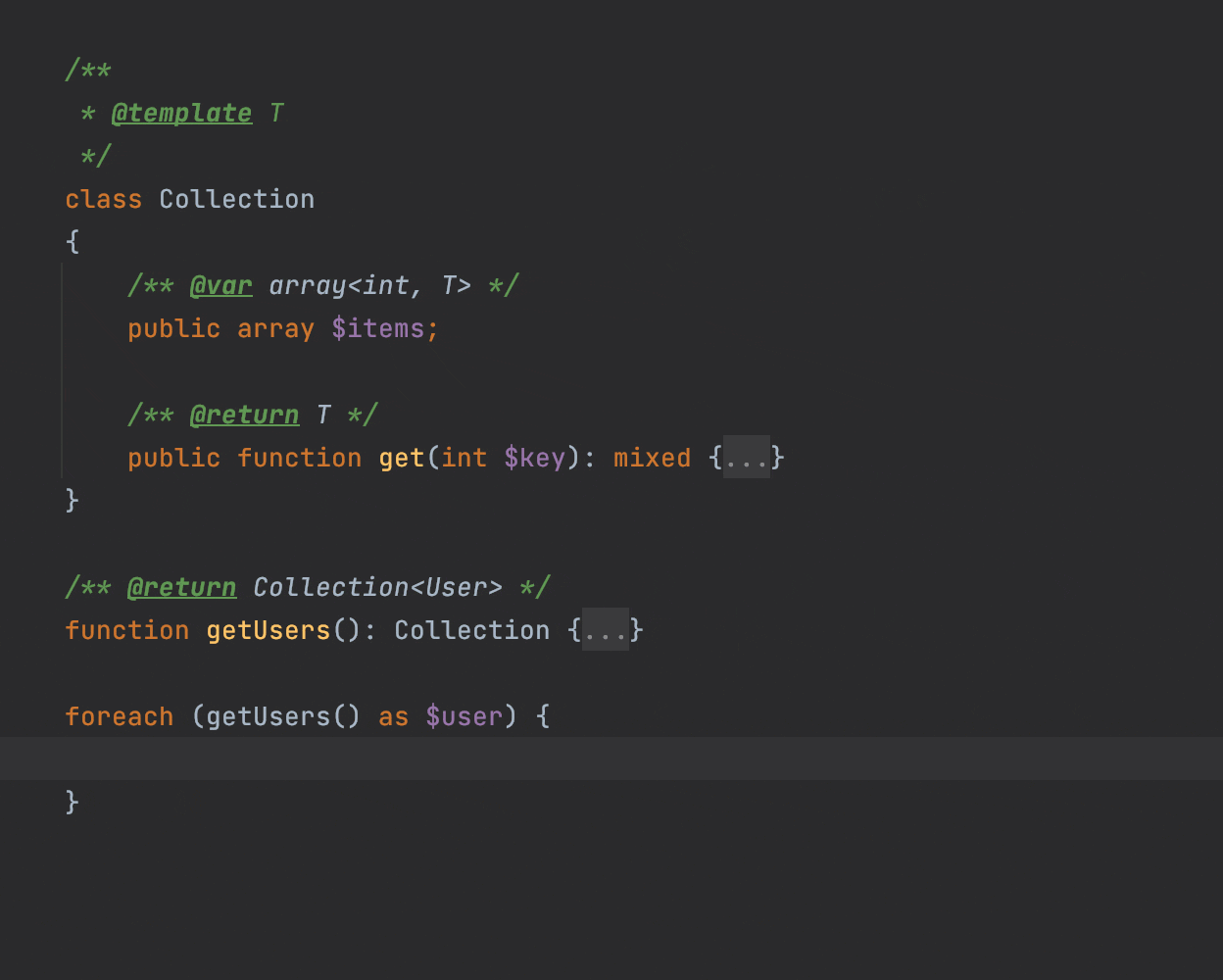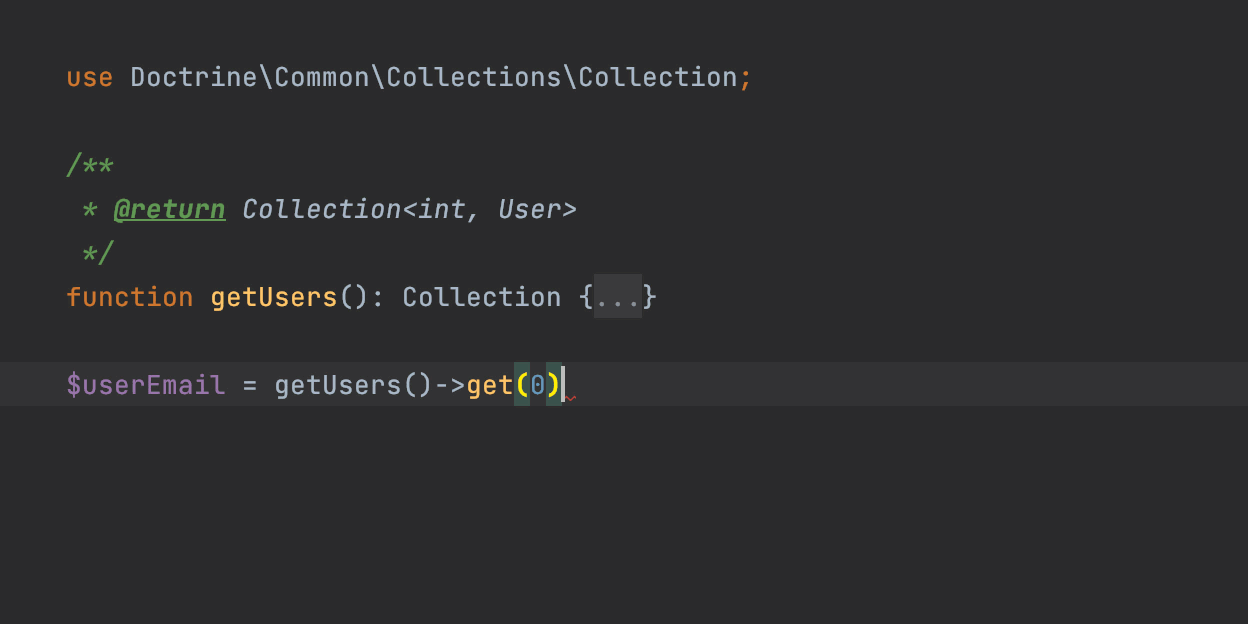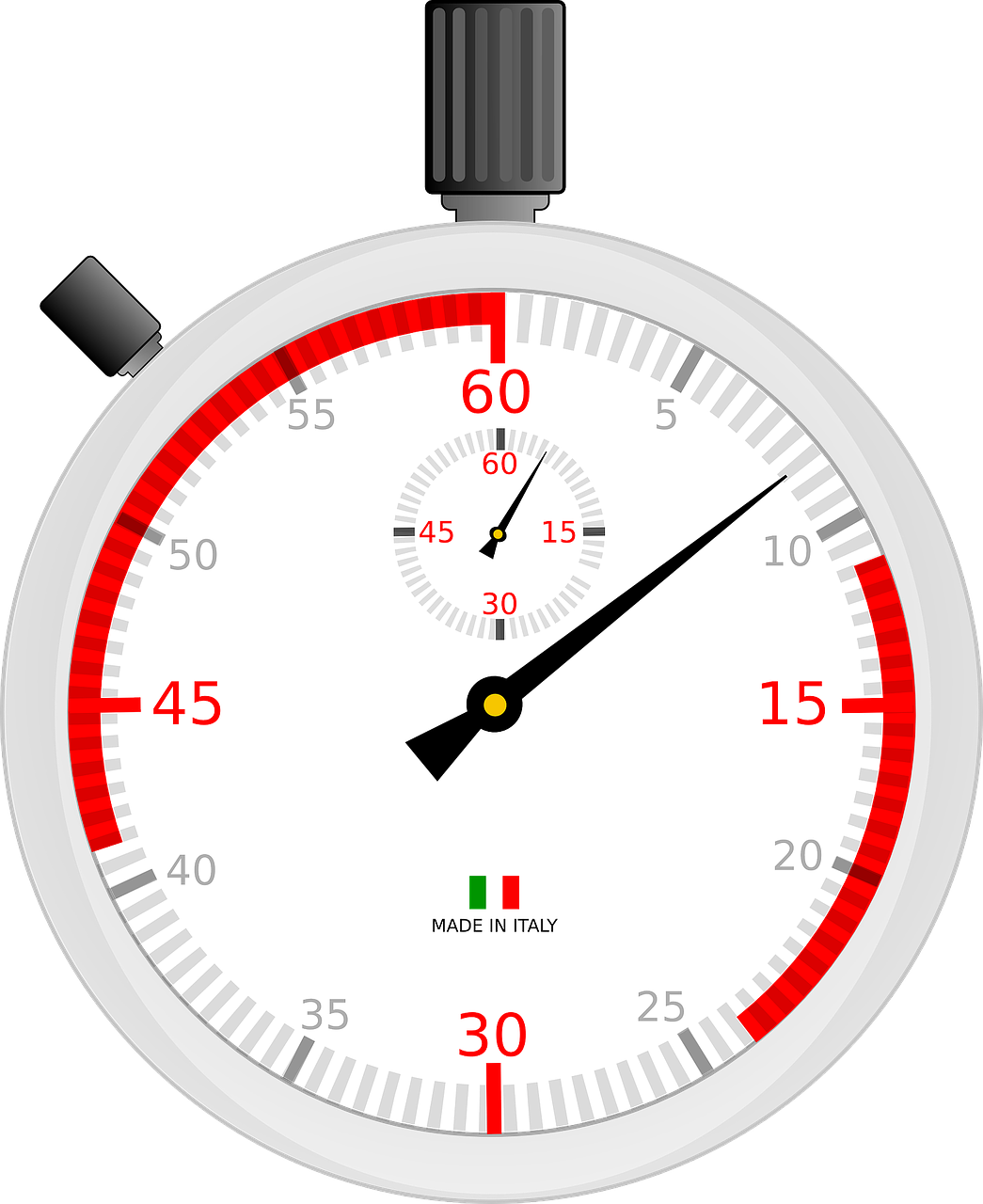Les génériques
(en )

A propos de moi
Karim Pinchon
- Développeur backend
- @kpn13
- https://blog.karimpinchon.com
- https://slides.com/kpn13








De quoi va-t-on parler ?
Les génériques ?
Des cas d'utilisations
Regardons ailleurs
En PHP
L'écosystème
L'exemple de Symfony
Sommaire






C'est quoi les génériques ?
Définition
Les génériques permettent de rendre paramétrables les types des classes, interfaces et méthodes...
Écrire du code typé mais sans être spécifiquement lié à un type.
Définition
Ajouter une couche d'abstraction sur les types.
Définition
Avantages
Pas de cast (ou documentation)
Optimise et simplifie (?)
Facilite la maintenance du code
Augmente la sécurité du code




Des inconvénients
Notation pas (toujours) simple
Performances au runtime (?)


Aujourd'hui
Concept important
Souvent natif (Java, Go, Rust, ...)
Très attendu



Les cas d'utilisations
Des collections
class Collection
{
public function push(??? $item): void {}
public function pop(): ??? {}
}class TypedCollection
{
private string $type;
public function push(??? $item): void {}
public function pop(): ??? {}
}class FooCollection
{
public function push(Foo $item): void {}
public function pop(): Foo {}
}Des utilitaires
function add(??? $a, ??? $b): ???
{
return $a + $b;
}
$result = add(1, 42); // is a int
$result = add(2.21, 3.14); // is a float
function transformToArray(??? $a, ??? $b): array
{
return [$a, $b];
}
$result = transformToArray(1, 42); // is a int[]
$result = transformToArray(2.21, 3.14); // is a float[]Des factories
function make(string $className): ???
{
return new $className();
}
$result = make(Foo::class); // is a Foo
$result = make(Exception::class); // is an ExceptionRegardons ailleurs
Quels langages ?












Des conventions ?
- T : 1er type
- S : 2ème type
- U : 3ème type
- V : 4ème type
- K : clé d'une map
- V : valeur d'une map
- ...
- TKey
- TValue
- TFooBar

Exemple en Go
Exemple en Go
func SumIntsOrFloats[K comparable, V int64 | float64](m map[K]V) V {
var s V
for _, v := range m {
s += v
}
return s
}
SumIntsOrFloats[string, int64](ints)
SumIntsOrFloats[string, float64](floats)Exemple en Go
type Number interface {
int64 | float64
}
func SumNumbers[K comparable, V Number](m map[K]V) V {
var s V
for _, v := range m {
s += v
}
return s
}
SumNumbers(ints)
SumNumbers(floats)
Exemple en Java
Exemple en Java
public class Box<T> {
private T t;
public void set(T t)
{
this.t = t;
}
public T get()
{
return t;
}
}
Box<Integer> integerBox = new Box<Integer>();Exemple en Java
class Util {
public static <T> T findGreatest(T p1, T p2) {
...
}
}
Util.findGreatest(1, 42); //42
Util.findGreatest("symfony", "laravel"); // symfony
Exemple en Typescript
Exemple en Typescript
function identity(arg: any): any {
return arg;
}
let output1 = identity("myString");
let output2 = identity(42);function identity<T>(arg: T): T {
return arg;
}
let outputString = identity<string>("myString");
let outputNumber = identity<number>(42);Exemple en Typescript

Exemple en Rust
Exemple en Rust
fn foo<T>(p: T) {
...
}Comment ça se passe en PHP ?
Pourquoi PHP ne supportera probablement jamais les génériques ?
(parce que Nikita l'a dit)
- https://github.com/PHPGenerics/php-generics-rfc/issues/45
- https://www.redditmedia.com/r/PHP/comments/...

On ne typehint plus ?
// i can take every param and return what i want
function identity($value)
{
return $value;
}
$r1 = identity(2023);
$r2 = identity('Symfony Live Paris');
$r3 = identity(true);
$r4 = identity(['Symfony Live Paris']);
echo $r4[0];

Et si on utilisait mixed ?
- Depuis PHP 8.0
- object|resource|array|string|float|int|bool|null
Si on utilisait ça ?

Et si on utilisait mixed ?
function identity(mixed $value): mixed
{
return $value;
}
$r1 = identity(2023);
$r2 = identity('Symfony Live Paris');
$r3 = identity(true);
$r4 = identity(['Symfony Live Paris']);
echo $r4[0];

Quelles solutions avons-nous alors ?
Les annotations !
- @template
- @extends
- @implements
- class-string
- ...
Les limites des annotations
la syntaxe sous forme de commentaire
coloration syntaxique quasi inexistante
validation du contenu difficile
...

/*

L'écosystème



Des outils pour nous aider
Les annotations

@template
/**
* @template T
* @param T $value
* @return T
*/
function identity(mixed $value): mixed
{
return $value;
}
$r1 = identity(2023);
$r2 = identity('Symfony Live Paris');
$r3 = identity(true);
$r4 = identity(['Symfony Live Paris']);
echo $r4[0];

@template
/**
* @template T
* @param T $value
* @return T
*/
function identity(mixed $value): mixed
{
return [$value];
}
$r1 = identity(2023);
$r2 = identity('Symfony Live Paris');
$r3 = identity(true);
$r4 = identity(['Symfony Live Paris']);
echo $r1[0]; // 2023
echo $r2[0]; // Symfony Live Paris
echo $r3[0]; // 1
echo $r4[0]; // Warning: Array to string conversion

@template
/**
* @template T
*/
interface Collection
{
/**
* @param T $item
*/
public function push(mixed $item): void;
/**
* @return T
*/
public function pop(): mixed;
}@template
/**
* @template K
* @template V
*/
interface Collection
{
/**
* @param V $item
*/
public function push(mixed $item): void;
/**
* @return V
*/
public function pop(): mixed;
/**
* @param K $index
* @return V
*/
public function get(mixed $index): mixed;
}@template T of foo
/**
* @template T of \Exception
* @param T $value
* @return T
*/
function identity($value): mixed
{
return $value;
}
$r1 = identity(new LogicException());
assert($r1 instanceof LogicException);

@template T of foo
/**
* @template T of \Exception
* @param T $value
* @return T
*/
function identity($value): mixed
{
return $value;
}
$r1 = identity('Hello Symfony Live Paris!');
assert(is_string($r1));

class-string
/**
* @template T of object
* @param class-string<T> $className
* @return T
*/
function make(string $className): object
{
return new $className;
}
$e = make(Exception::class);
echo $e->getMessage();

class-string
function make(string $className): object
{
return new $className;
}
$e = make(Exception::class);
echo $e->getMessage();

@implements
/**
* @template T
*/
interface Collection
{
/** @param T $item */
public function add($item): void;
/** @return T */
public function get(): mixed;
}
/** @implements Collection<Bar> */
class BarCollection implements Collection
{
public function add($item): void {}
public function get(): mixed
{
return new Bar();
}
}

@implements
/**
* @template T
*/
interface Collection
{
/** @param T $item */
public function add($item): void;
/** @return T */
public function get(): mixed;
}
/** @implements Collection<Bar> */
class BarCollection implements Collection
{
public function add($item): void {}
public function get(): mixed
{
return 'Heyyy';
}
}

@extends
/**
* @template T
*/
class Collection
{
/** T $item */
protected mixed $item;
/** @param T $item */
public function add($item): void {$this->item = $item;}
/** @return T */
public function get(): mixed { return $this->item;}
}
/** @extends Collection<Bar> */
class BarCollection extends Collection
{
public function add($item): void {$this->item = $item;}
public function get(): mixed
{
return new Bar();
}
}

@extends
/**
* @template T
*/
class Collection
{
/** T $item */
protected mixed $item;
/** @return T */
public function get(): mixed { return $this->item;}
}
/** @extends Collection<Bar> */
class BarCollection extends Collection
{
public function get(): mixed
{
return 'Heyyy';
}
}

Covariance et contravariance

Covariance et contravariance
PaymentMean
CreditCard
covariance
contravariance
Covariance et contravariance
Depuis PHP 7.4
- covariance sur le type de retour
- contravariance sur le type des arguments



J'approuve !

Covariance et contravariance
class PaymentResult {}
class CreditCardPaymentResult extends PaymentResult {}
interface PaymentMean
{
public function processPayment(int $amount): PaymentResult;
}
class CreditCard implements PaymentMean
{
public function processPayment(int $amount): CreditCardPaymentResult
{
}
}
Covariance
Covariance et contravariance
class Result {}
class PaymentResult extends Result {}
interface PaymentMean
{
public function processPayment(int $amount): PaymentResult;
}
class CreditCard implements PaymentMean
{
public function processPayment(int $amount): Result
{
}
}Covariance


Covariance et contravariance
abstract class AsyncPaymentProcessor
{
public function process(PaymentMean $paymentMean): void;
}
class BankTransfertPaymentProcessor extends AsyncPaymentProcessor
{
public function process(PaymentMean $paymentMean): void
{
}
}Contravariance

Covariance et contravariance
interface PaymentMean {}
class BankTransfer implements PaymentMean {}
abstract class AsyncPaymentProcessor
{
public function process(PaymentMean $paymentMean): void;
}
class BankTransferPaymentProcessor extends AsyncPaymentProcessor
{
public function process(BankTransfer $paymentMean): void
{
}
}Contravariance


Covariance et contravariance
/**
* @template T of PaymentMean
*/
abstract class AsyncPaymentProcessor
{
/**
* @param T $paymentMean
*/
public function process(PaymentMean $paymentMean): void;
}
/**
* @implements AsyncPaymentProcessor<BankTransfert>
*/
class BankTransfertPaymentProcessor extends AsyncPaymentProcessor
{
public function process(PaymentMean $paymentMean): void
{
}
}Contravariance

Spécificités
PHPStan / PSalm

PSalm / PHPStan
/**
* @phpstan-template T of \Exception
*
* @phpstan-param T $param
* @phpstan-return T
*/
function foo($param) { ... }/**
* @psalm-template T of \Exception
*
* @psalm-param T $param
* @psalm-return T
*/
function foo($param) { ... }Support PHPStorm

PhpStorm 2021.2

PhpStorm 2021.2

Est-ce parfait ?

Est-ce parfait ?
Pas de surcoût au runtime
Couverture fonctionnelle
Source de vérité
PHP + annotations + attributs
Pas d'obligation





Est-ce parfait ?
/**
* Return the given value, optionally passed through the given callback.
*
* @template TValue
* @template TReturn
*
* @param TValue $value
* @param (callable(TValue): (TReturn))|null $callback
* @return ($callback is null ? TValue : TReturn)
*/
function with($value, callable $callback = null)
{
return is_null($callback) ? $value : $callback($value);
}L'exemple de Symfony

Pleins de pull requests
Dans quels composants ?
Form
Finder
Messenger
Workflow
Serializer
Security
VarExporter
Http
DI

Console
...
Quelques exemples

Quelques exemples
namespace Symfony\Component\Security\Http\Authenticator\Passport;
class Passport
{
/**
* @template TBadge of BadgeInterface
*
* @param class-string<TBadge> $badgeFqcn
*
* @return TBadge|null
*/
public function getBadge(string $badgeFqcn): ?BadgeInterface
{
return $this->badges[$badgeFqcn] ?? null;
}
...
}Quelques exemples
namespace Symfony\Component\Serializer;
interface SerializerInterface
{
/**
* Deserializes data into the given type.
*
* @template TObject of object
* @template TType of string|class-string<TObject>
*
* @param TType $type
* @param array<string, mixed> $context
*
* @psalm-return (TType is class-string<TObject> ? TObject : mixed)
*
* @phpstan-return ($type is class-string<TObject> ? TObject : mixed)
*/
public function deserialize(mixed $data, string $type, ...): mixed;
}Quelques exemples
<?php
namespace Symfony\Component\Messenger;
final class Envelope
{
/**
* @template TStamp of StampInterface
*
* @param class-string<TStamp> $stamp
*
* @return TStamp|null
*/
public function last(string $stamp): ?StampInterface
{
return isset($this->stamps[$stamp]) ? end($this->stamps[$stamp]) : null;
}
}Quelques exemples
<?php
namespace Symfony\Component\DependencyInjection\ParameterBag;
interface ContainerBagInterface extends ContainerInterface
{
/**
* Replaces parameter placeholders (%name%) by their values.
*
* @template TValue of array<array|scalar>|scalar
*
* @param TValue $value
*
* @return mixed
* @psalm-return (TValue is scalar ? array|scalar : array<array|scalar>)
*/
public function resolveValue(mixed $value);
}Quelques exemples
<?php
namespace Symfony\Component\Console\Helper;
/**
* @implements \IteratorAggregate<string, HelperInterface>
*/
class HelperSet implements \IteratorAggregate
{
}Quelques exemples
<?php
namespace Symfony\Component\DependencyInjection;
/**
* A ServiceProviderInterface exposes the identifiers
* and the types of services provided by a container.
*
* @template T of mixed
*/
interface ServiceProviderInterface extends ContainerInterface
{
/**
* @return T
*/
public function get(string $id): mixed;
}
/**
* @template-covariant T of mixed
*
* @implements ServiceProviderInterface<T>
*/
class ServiceLocator implements ServiceProviderInterface, \Countable {}Conclusion
Conclusion
Concept important (collection, ...)
Pas natif en PHP
Très bien supporté par des outils




https://slides.com/kpn13
Remerciements




@kpn13
https://blog.karimpinchon.com





- https://stitcher.io/blog/php-generics-and-why-we-need-them
- https://psalm.dev/docs/annotating_code/templated_annotations/
- https://phpstan.org/blog/generics-in-php-using-phpdocs
- https://phpstan.org/blog/generics-by-examples
- https://phpstan.org/blog/whats-up-with-template-covariant
- https://go.dev/doc/tutorial/generics
- https://youtrack.jetbrains.com/issue/WI-60894
- https://youtrack.jetbrains.com/issue/WI-61497
- https://github.com/mrsuh/php-generics
- https://arnaud.le-blanc.net/post/phpstan-generics.html
- https://github.com/PHPGenerics/php-generics-rfc/issues/45
- https://www.redditmedia.com/r/PHP/comments/j65968/ama_with_the_phpstorm_team_from_jetbrains_on/g83skiz/
Ressources
Les génériques (en PHP)
By Karim PINCHON
Les génériques (en PHP)
Les génériques sont un concept des langages de programmation. En bref, ils permettent d'écrire du code typé mais sans être spécifiquement lié à un type particulier. Beaucoup de langages supportent déjà les génériques plus ou moins nativement : Java, C#, Go, Rust Typescript... Ce n'est pas le cas de PHP, mais grâce à sa communauté et son ecosystème, il est tout de même possible de les utiliser. Je vous propose de voir comment et dans quel but, en s'appuyant sur l'exemple de composants Symfony.
- 1,812



